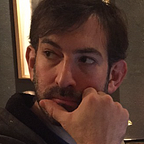Free Speech in a Global Context
Dangerously illiberal trends in liberal societies
Free expression is a bedrock of liberal society. Without it, democracy is impossible.
Though sometimes misconstrued as “I can say whatever I want, whenever I want, without consequence,” the core principle is that force cannot be used to stop expression. Most notably, governments cannot restrict political speech.
Like all big ideas, it comes with flaws. But as a guiding principle, free speech is better for individuals, politics, and society than the alternative. It facilitates the spread and competition of ideas, ensures individual freedom, checks government power, and provides a prerequisite for free and fair elections.
However, an illiberal current within liberal society argues that some speech should be deemed out of bounds, and that legal restrictions or private efforts should silence unwanted expression.
The illiberal argument focuses on group equality rather than individual liberty. For example, hate speech against historically marginalized groups restricts their ability to participate in politics and society as equals. By outlawing hate speech, countries counter institutionalized racial, ethnic, religious, and/or gender-based inequality.
